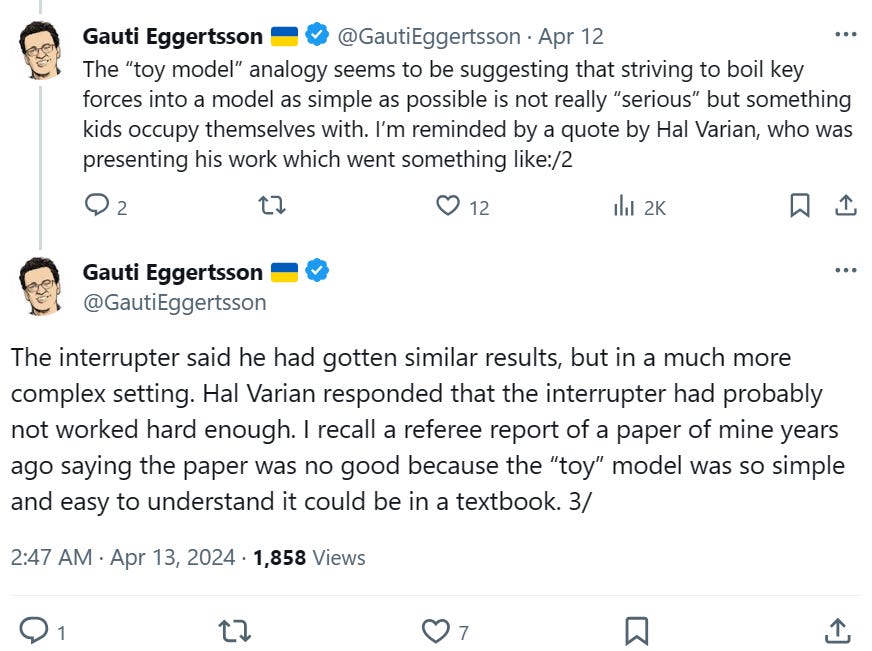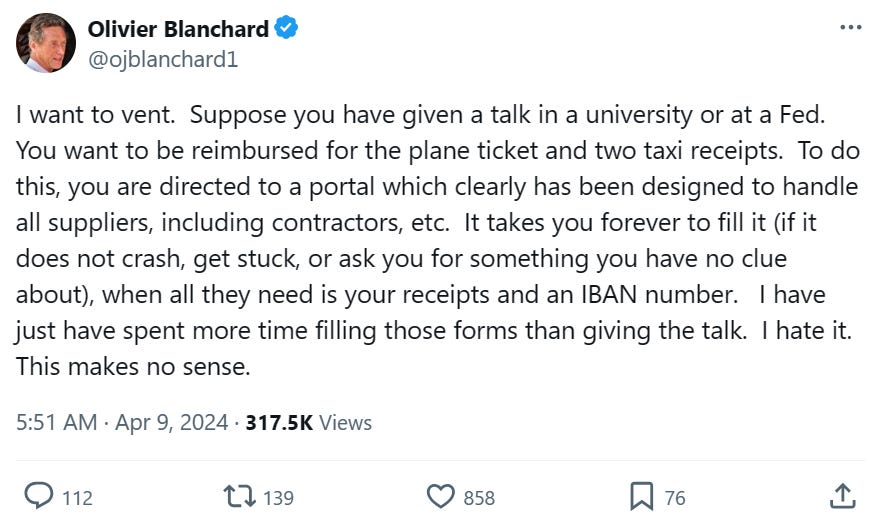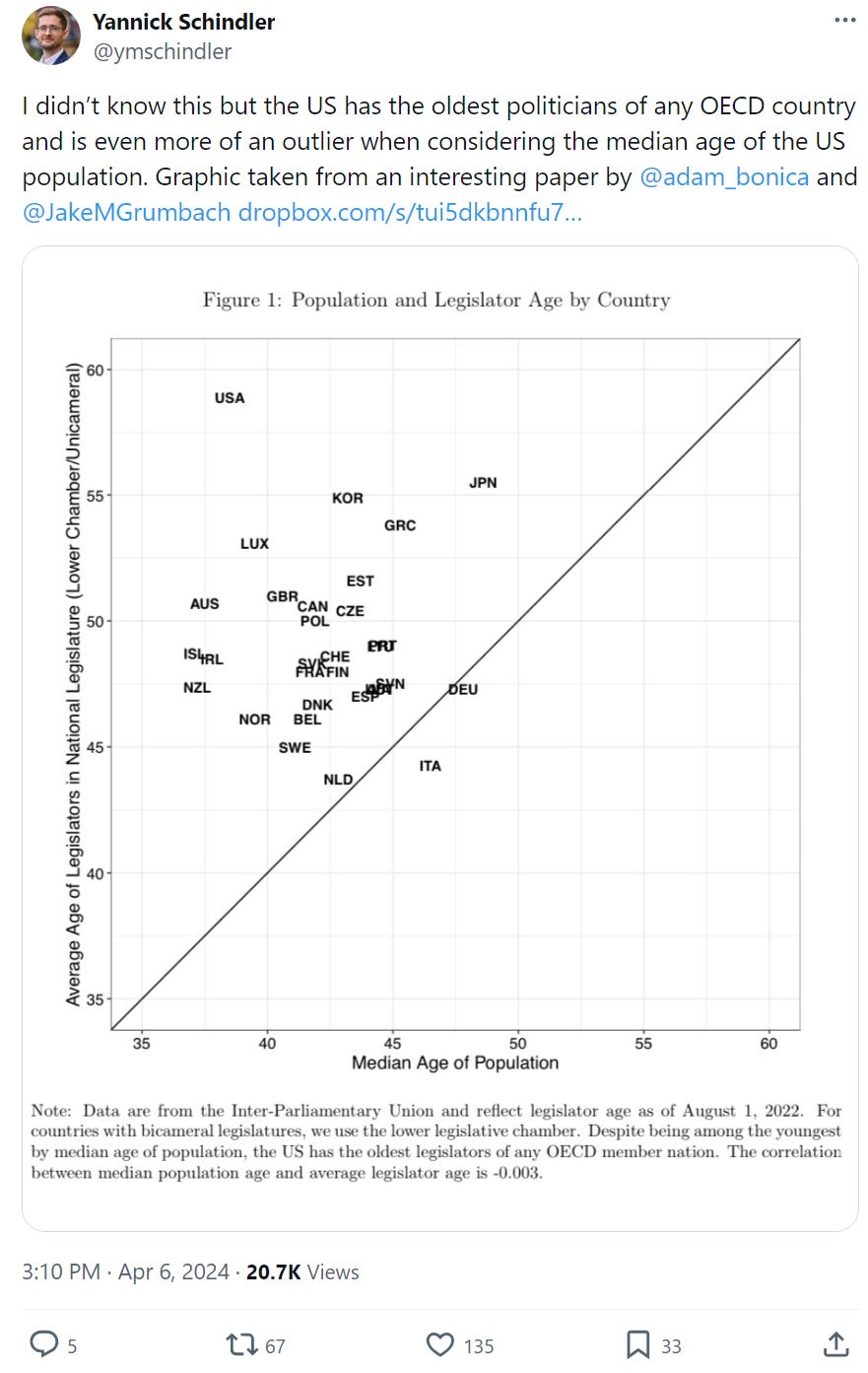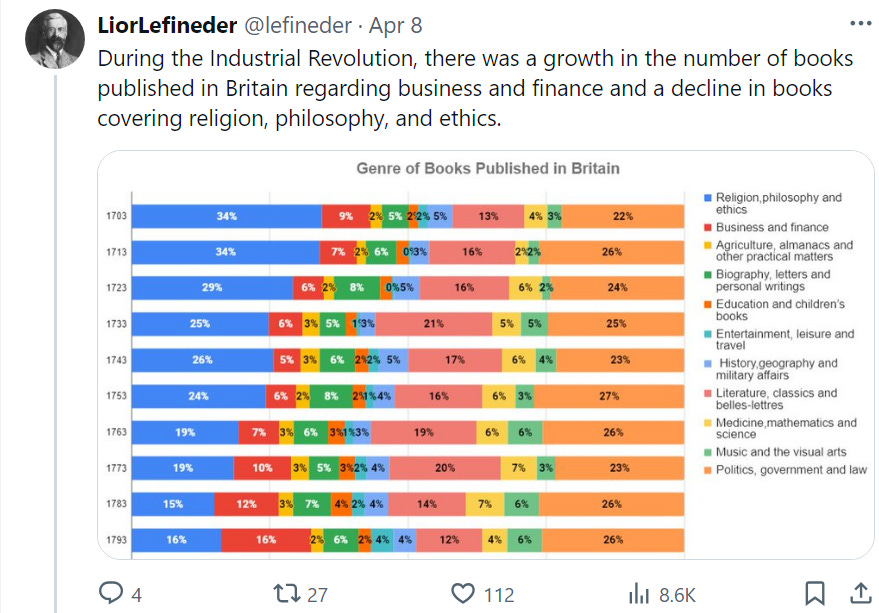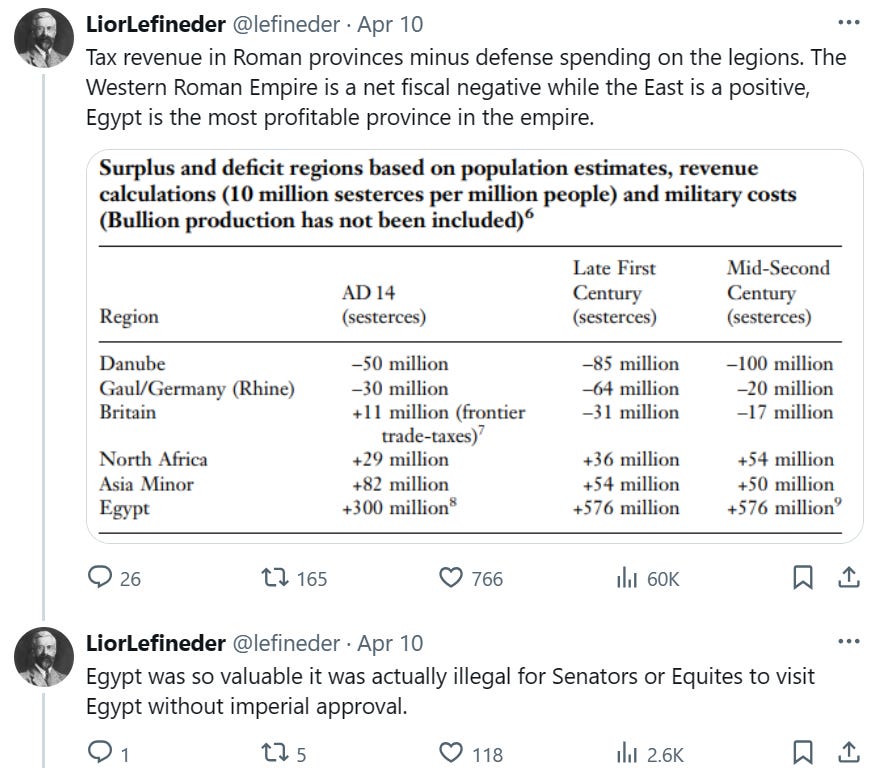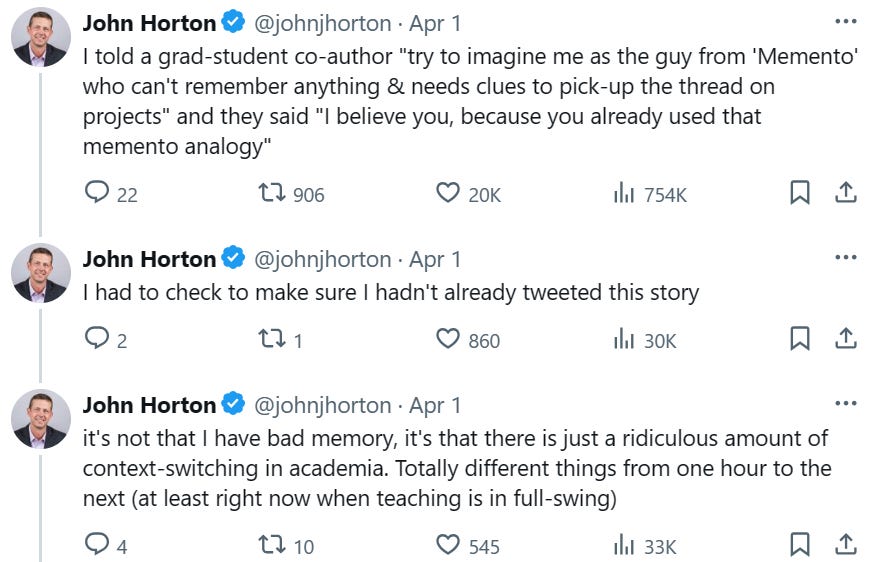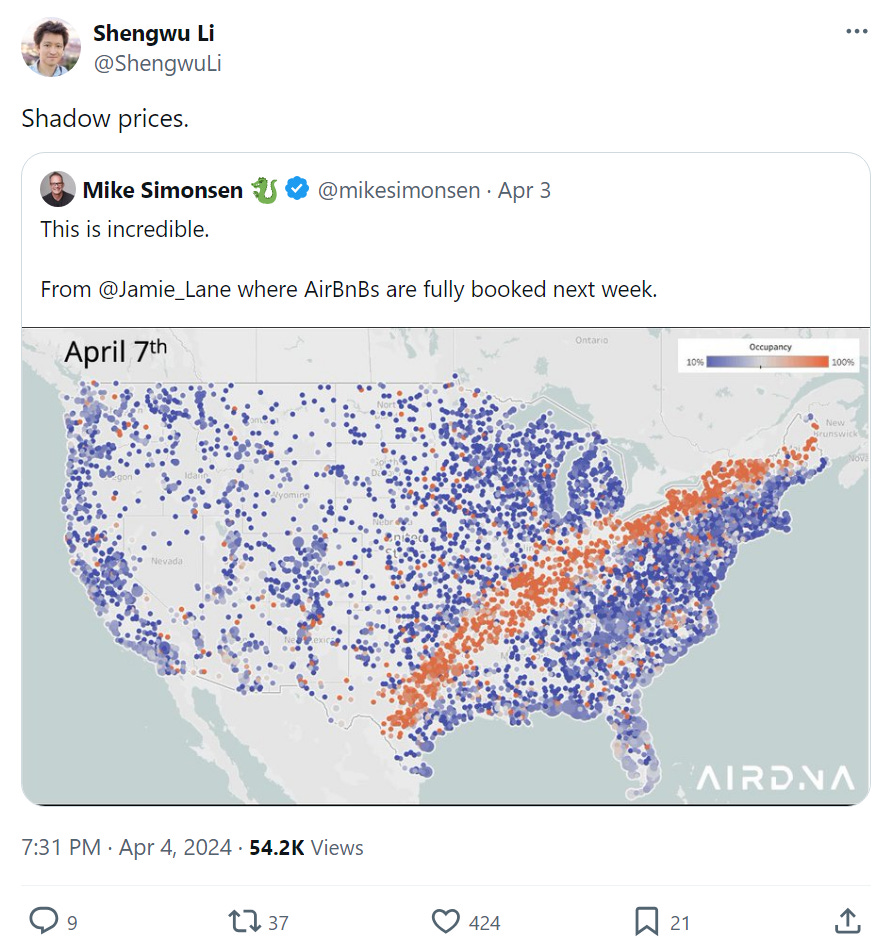Best of #econtwitter - Weeks of April 7 and April 14, 2024: interesting tweets
Welcome readers old and new to this week’s edition of the Best of Econtwitter newsletter. Please submit suggestions — very much including your own work! — over email or on Twitter @just_economics.
This edition is a bit of a monster. We’ll be doubling up — covering two weeks at a time — for a bit, in order to catch up…
Misc
^Krugman (🐐) on “How I Work”:
What I found myself doing in the new trade theory was pretty much the opposite. I found myself using assumptions that were unfamiliar, and doing very simple things with them. Doing this requires a lot of self-confidence, because initially people (especially referees) are almost certain not simply to criticize your work but to ridicule it. After all, your assumptions will surely look peculiar: a continuum of goods all with identical production functions, entering symmetrically into utility? Countries of identical economic size, with mirror-image factor endowments? Why, people will ask, should they be interested in a model with such silly assumptions -- especially when there are evidently much smarter young people who demonstrate their quality by solving hard problems?
What seems terribly hard for many economists to accept is that all our models involve silly assumptions. Given what we know about cognitive psychology, utility maximization is a ludicrous concept; equilibrium pretty foolish outside of financial markets; perfect competition a howler for most industries. The reason for making these assumptions is not that they are reasonable but that they seem to help us produce models that are helpful metaphors for things that we think happen in the real world.
Consider the example which some economists seem to think is not simply a useful model but revealed divine truth: the Arrow-Debreu model of perfect competition with utility maximization and complete markets. This is indeed a wonderful model -- not because its assumptions are remotely plausible but because it helps us think more clearly about both the nature of economic efficiency and the prospects for achieving efficiency under a market system. It is actually a piece of inspired, marvellous silliness.
^great thread (but wish it was still posted on afinetheorem.wordpress.com)
^discussion slides are underprovided/underrewarded by the academic “market”
^Claude is really good at this
^😬😬
Charts
^🤯
^this U-shape must be Baumol? Alternatively it is a data issue?
Public goods
Fin
^good month for viral self-effacing tweets from @johnjhorton:


